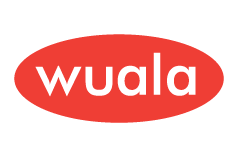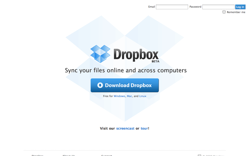We were once a big booster of Dropbox. But recent events have caused us to doubt them. On July 1st, Dropbox revised their policies. This was in response to a well publicized authentication breach where, for several hours, access to accounts was permitted without valid passwords. This followed the realization that despite assurances, Dropbox employees can access your data, but only to the extent that they need to(or so they say).
Does this mean we doubt the sincerity of the company? No more than any other company. But we’ve decided to move on…to Wuala. Wuala is a secure online storage service that provides many more features than Dropbox, if less supported.
There are three core principles of Wuala:
- Security and privacy
- Bridging web and desktop
- Economic technology
In terms of security, Wuala offers client-side encryption, which means that the encryption is performed on one’s one computer. During the upload, data is split and stored in multiple locations. They promise that because your password is never transmitted, no one, including their employees, can see private files.
Wuala offers a desktop app for Windows, Mac and Linux, and mobile apps for iOS and Android. There is even a web version. You get 1GB for free, and you can gain additional storage by paying for it, trading your local storage for extra storage(more on that in a moment), or inviting friends to join Wuala.
Wuala offers both backup and synchronization options. Backup saves local files regularly into the Wuala Drive, at an interval of your choosing. The backup are read-only. Sync allows you to sync files and folders across multiple computers. Dropbox provides sync only.
If you want to pay for storage above the free 1GB, it is $29 a year for 10GB, $49 for 25GB, and so on. You can also trade for storage. You can trade up to 100GB on your computer in exchange for 100GB in the cloud. You get whatever you provide multiplied by your online time. You must be on for at least 4 hours a day. As they put it, this doesn’t give you extra storage, but you give up storage locally to gain it elsewhere, which has its advantages.
We’ve set up the Wuala client on our headless server to trade storage. It also resides on our desktop systems to sync our files. We have plans to expand the headless part, to generate backups of the entire Wuala sync and send it to a secondary backup site as well, but that is for the future. The Wuala client allows it to be mounted as an NFS partition for that purpose.
There is an Android client we have tested. It lacks many features of the Dropbox app, including directory download/sync/upload and support for the Android sharing functionality. Of course, the Wuala developers have acknowledge this as a desired feature, but there is no timetable for its implementation. If they are slow in doing so, there would be hope of a third-party app, however, the Wuala API is in Alpha and only supports GET requests. It has been in this state for over a year.
When it comes down to it, Wuala is not perfect. But it offers a more complete feature set than Dropbox, if a less mature API and Android client. But, like many things, it is a matter of what is more important to you.
Related articles
- [New App] Wuala Brings Secure Cloud Storage To Android (androidpolice.com)
- Secure alternatives to @Dropbox: Where I’ll be investing my $99 refund. (phillipadsmith.com)
- Should Dropbox & Co be Killed? (rootshell.be)
- Dropbox Left User Accounts Unlocked for 4 Hours Sunday (bellwort.wordpress.com)







